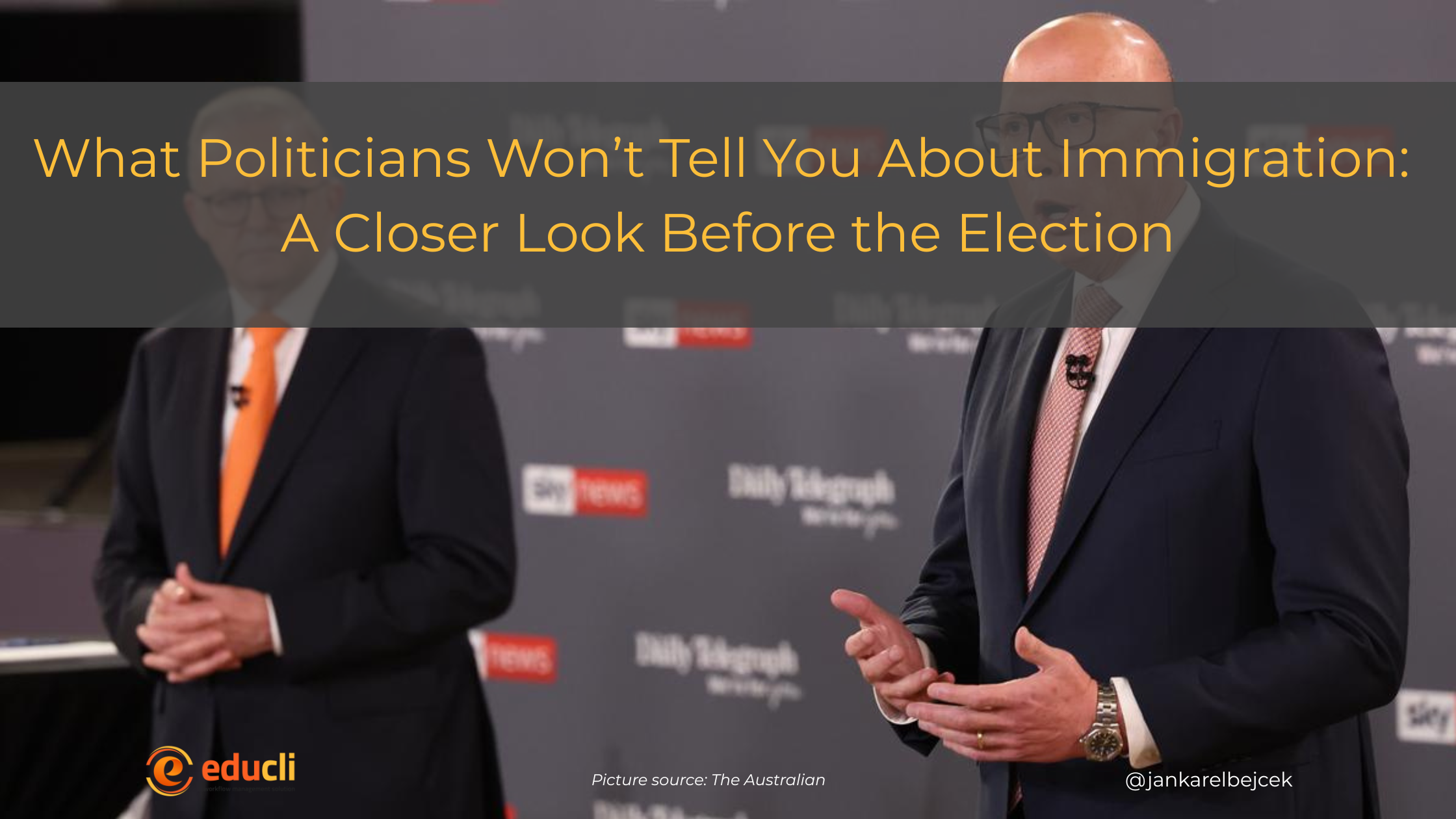As Australia heads towards another federal election, both major political parties are once again turning to a familiar narrative—immigration and international students. It’s the kind of headline that stirs emotion, garners attention, and too often oversimplifies a complex issue. But what they won’t tell you is this: most of the talking points are misdirected, misleading, and based on flawed comparisons—particularly when Australia is looking up to countries like the United States.
Australia Is Not the USA
When politicians argue about controlling borders, student numbers, and immigration policies, they often lean on examples from the United States. But Australia and the U.S. are fundamentally different.
- Population: The U.S. has over 330 million people, while Australia sits at just 26 million.
- Illegal Immigration: The U.S. has an estimated 10–12 million undocumented immigrants. Australia has a few thousand, mostly visa overstayers who entered legally.
- Education & Prestige: U.S. universities like Harvard, MIT, and Stanford attract the best talent globally. Australia does well, but our education system does not carry the same global prestige. So, when students choose Australia, it’s not because we’re the world’s top destination—it’s because of safety, lifestyle, and the relative ease of access.
- Living Costs: Sydney and Melbourne routinely rank among the most expensive cities in the world. In comparison, many major U.S. cities have significantly lower living costs. Students choosing Australia pay a premium—and they bring that money into our economy.
The Scapegoating of International Students
In recent years, politicians have ramped up rhetoric around international students “taking jobs” and “causing rental shortages.” This narrative is not only false—it’s dangerous.
Research and reports have consistently shown that:
- International students contribute billions to the economy—over $50 billion in 2024.
- They create jobs, particularly in education, hospitality, and accommodation sectors.
- They do not take away jobs from Australians; in fact, many work part-time in roles and gig-economy jobs which many Australians are unwilling to take.
- Claims that they are responsible for the housing crisis have been debunked. The real issue lies in years of underinvestment in housing and poor urban planning.
The $5,000 Visa Application Fee
Proposing a $5,000 application fee for international student visas is not only illogical—it’s a slap in the face to the very sector that is keeping parts of our economy alive.
Let’s be clear: this won’t stop low-quality applications. It will stop legitimate, qualified, and talented individuals from choosing Australia. And they’ll simply go elsewhere—to Canada, the UK, or the U.S. or any other upcoming destination that is inviting for international students—taking their money and skills with them.
A Smarter Immigration Strategy
Australia can’t compete with the U.S. in manufacturing or technology. We don’t have the population for massive-scale, labour-intensive industries. We don’t have the cost advantage either.
What we do have is education, lifestyle, and a stable political environment. That’s our competitive edge. And international education should be seen not as a problem—but a solution.
A smarter strategy would be:
- Investing in the international education sector, not overregulating it into decline.
- Supporting pathways for high-performing graduates to stay and contribute to our workforce.
- Distinguishing between legal, temporary migration (like students) and illegal immigration—they are not the same issue and should not be lumped together.
The Real Drain on Public Resources
Let’s be honest: illegal immigration is a cost to the system—particularly in countries like the U.S. But Australia doesn’t have this problem at scale. Yet, our politicians want to apply U.S.-style solutions to non-U.S. problems.
It’s a distraction, a political tool, and the general public should stop falling for it.
In Conclusion
As voters and as an industry, we should demand more than slogans and fearmongering. Immigration, especially international education, is a critical part of Australia’s future. If we continue down the path of overregulation, excessive fees, and anti-migrant rhetoric, we won’t just lose students—we’ll lose relevance.
Australia’s future depends not on closing its doors—but on knowing when and how to open them. And that’s something politicians won’t tell you.
#InternationalStudents #InternationalEducation #StudyInAustralia #EducationMatters #ImmigrationPolicy #Election2025 #ThinkBeforeYouVote #EconomicGrowth #Edtech #educli





Leave A Comment